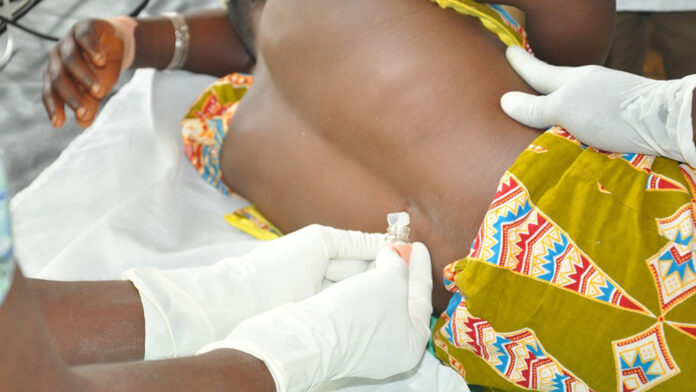By Blessing Otobong-Gabriel
Nigeria Centre for Disease Control, NCDC, has reported that the country recorded 4,915 suspected cases, 380 confirmed cases and 361 deaths from Cerebrospinal Meningitis, CSM, across 174 local government areas in 24 states and the Federal Capital Territory.
Director-General of the centre, Dr Jide Idris, who made this known at a press briefing, said 2,281,750 doses of Men5CV- ACWYX have been distributed in Bauchi, Gombe, Jigawa and Yobe covering 134 wards.
The campaign targeted individuals aged 1-29, comprising 70 percent of the population.
He said despite significant progress in surveillance, diagnostic capacity and vaccination over the last few years, CSM remains a priority disease and ever-present public health threat in Nigeria with annual outbreaks in high-burden states that present a challenge for people, health systems, economies and communities.
He informed that cerebrospinal meningitis occurs when there is acute inflammation of the covering of the brain and spinal cord.
According to him, this inflammation can be caused by infection with any of the following organisms – bacteria, viruses, parasites or fungi. Injuries and certain drugs can also cause such inflammation.
“CSM is an epidemic-prone disease with cases reported all year round in Nigeria. However, weather conditions like the dry season that comes with dust, winds, cold nights and frequent upper respiratory tract infections increase the risk of infection, especially with crowding and poor ventilation. The highest burden of CSM in Nigeria occurs in the “Meningitis Belt” which includes the 19 northern states, Federal Capital Territory, FCT, and some southern states such as Bayelsa, Cross River, Delta, Ekiti, Ogun, Ondo, Osun),” he disclosed.
He noted that while the agency continues to intensify efforts using an all-of-society approach, the public is advised to note that the virus spreads through direct person-to-person contact, including droplets from the nose and throat of infected persons.
He urged the general public to ensure that loved ones have received the appropriate vaccination required to protect against meningitis, avoid close and prolonged contact with a confirmed case of CSM including relatives, avoid overcrowding in households, dormitories, IDP camps, prisons and other communal settings, practice proper respiratory hygiene when coughing or sneezing and discourage indoor air pollution, such as indoor cooking over open flames.
“Healthcare workers are advised to practice standard infection prevention and control practices: i.e, wear gloves and other appropriate personal protective equipment while handling patients or providing care to an ill patient,” he added.





